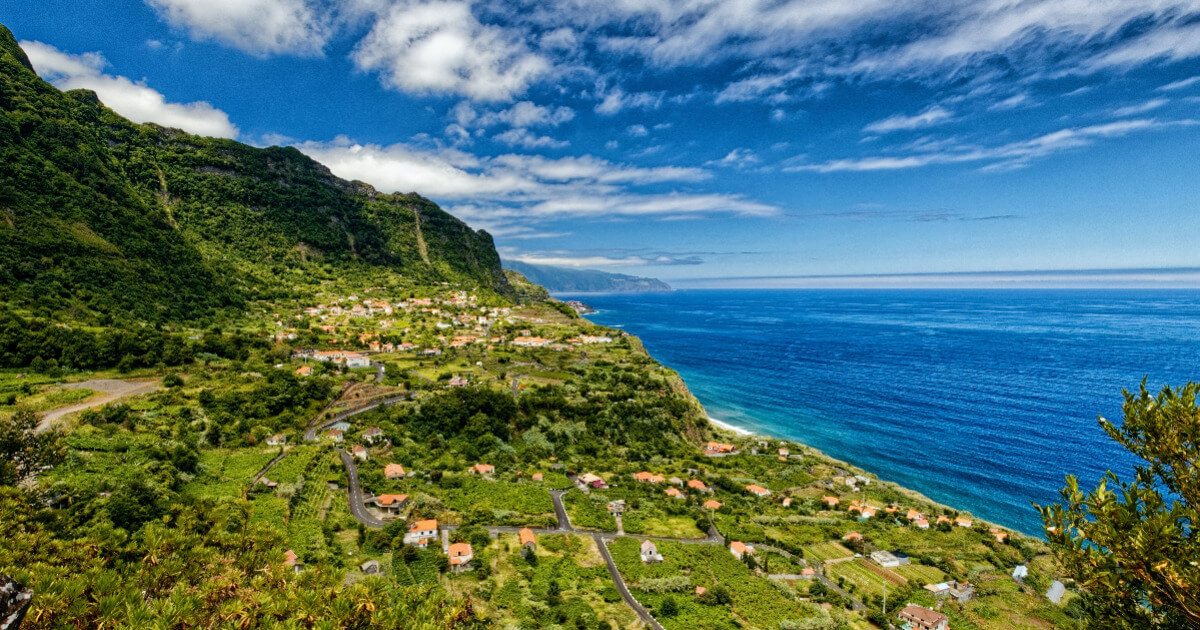In Portugal (including the Autonomous Region of Madeira), there are several expenditures associated with purchasing a real estate property, such as lawyer, notary and administrative fees; additionally, one will also face property taxes in Portugal, namely: municipal property tax (IMI), municipal property transfer tax (IMT), and stamp duty (IS).
The abovementioned property taxes are levied regardless of your tax residency status, meaning that whether one is a resident or non-resident, one is still liable to taxation for tax purposes.
Learn More about Property Taxes in Portugal
Municipal Property Tax (IMI)
As a real estate property owner in Portugal, one must pay a property tax (IMI – Imposto Municipal Sobre Imóveis). The IMI is calculated by applying the tax rate determined by the municipality where the property is located by the tax asset value of the property, as determined by the Portuguese Tax and Customs Authority. The tax rate varies from municipality to municipality, as municipal governing bodies have the power to decide their rates concerning. Taxpayers are liable to IMI if they own the property on the last day of the corresponding tax year (which is the same as the Gregorian calendar year).
The property tax rate applicable to urban properties ranges between 0.3% and 0.45%. On the other hand, rural properties are taxed at a fixed rate of 0.8%.
If a property value has been reassessed since 2004, the IMI rate will be lowered between 0.2% and 0.5%. If a property were appraised before 2004, the rate would be between 0.4% and 0.8%.
Notwithstanding the abovementioned tax rates, if a real estate property is owned through a company located in a blacklisted jurisdiction identified, the IMI rate will be 7.5%.
There will be exemptions from property taxes (IMI) in some instances. In this case, taxpayers must fulfil precise criteria and be assessed by a Bar-Certified lawyer or Board-Certified accountant before applying for them.
Finally, should a household’s annual taxable income not exceed €15,295, a formal request can be filled with the Portuguese Tax and Customs Authority to qualify for a permanent exemption. This request must be made before the house purchase and after the completed property evaluation. As previously mentioned, a Bar-Certified lawyer or Board-Certified accountant should assist you in obtaining said benefit to assure that you meet all the criteria.
Municipal Property Transfer Tax (IMT)
Property taxes in Portugal are also levied each time a home is purchased, said tax is the Municipal Property Tax (IMT – Imposto Municipal Sobre as Transmissões Onerosas de Imóveis). The tax levied varies according to the type and value of the property and is based on either the value stated in the purchase deed or the rateable value., whichever is higher. IMT must be paid before the purchase of the property.
Generally speaking, IMT rates will vary between 0% and 8%. IMT rates are lower if the property (urban building or fraction) is for own and permanent habitation and higher for housing for other purposes, e.g. secondary or rental. To determine the exact IMT rate applicable to your property purchase, don’t hesitate to contact one of our Board-Certified accountants.
Like the IMI, some situations might exempt a taxpayer from IMT, namely:
- Purchase of properties for resale by real estate trading companies
- Acquisition of properties aimed at urban rehabilitation
- Purchase of real estate by real estate investment funds for residential letting
- Purchase of buildings regarded as of national, public, or municipal interest
Stamp Duty (IS)
Purchasers must pay stamp duty on deeds, contracts, bank mortgages and loans, papers, and titles (IS – Imposto de Selo). The tax varies based on the kind and worth of the property. Depending on the type of deed/operation, the applicable tax may vary between 0.4% and 0.8%.
When purchasing a home, stamp duty is paid to the notary together with the document of sale. This stamp duty has a rate of 0.8 per cent. On the other hand, stamp duty must also be paid when obtaining mortgages. When the payback time exceeds five years, the stamp duty tax is 0.60 per cent. However, if fewer than five years have passed, the tax rate is 0.5%.
It is essential to mention that corporate property ownership transfers are exempt from paying stamp duty.
Other relevant Taxes in Portugal
Rental Income Tax
Under Portuguese Tax law, landlords are liable for the following taxes:
- Stamp Duty: corresponds to 10% of the value defined in the lease contract and is payable when new contracts are entered into. The landlord’s responsibility is to communicate the new contracts to the competent entities.
- Municipal Property Tax (IMI).
- Personal Income Tax: the landlord must report the rental income received. The tax rate varies according to the length of the rental agreement. It usually varies between 10% (for contracts equal to or superior to 20 years) and 28% (for contracts inferior to 2 years).
- Municipal taxes: the landlord is still responsible for municipal taxes related to sanitation and sewage costs, among others.
Wealth/Luxury Tax
Since 2017, the municipal wealth (or luxury tax) tax (AIMI – Adicional Imposto Municipal Sobre Imóveis) has been in force in Portugal. This surcharge tax applies to real estate property owners who have a property with a value above €600,000. Those qualifying as non-residents are taxed in the same way as residents.
The applicable AIMI is levied as follows:
- 0.4 % on the entire value of all company-held properties.
- 0.7% for individuals. If the property is worth over €1,000,000, the applicable AIMI rate is 1%.
A deduction of €600.000 allowance per person from the value of all Portuguese properties is available. Therefore, if two taxpayers own a Portuguese home jointly, AIMI will be in effect if the property is worth more than €1.2 million.
Capital Gains Tax
For detailed information on the capital gains tax applicable to the sale of real estate property, please read our article on the matter here.
Inheritance Tax
No inheritance tax is liable for one’s immediate family (direct line ascendants and descendants, and spouse) since 2004. Yet, a 0.8% stamp duty is imposed. Also, a 10% stamp duty is in effect for non-immediate family members.
This article is provided for general information purposes only and is not intended to be, nor should it be construed as, legal or professional advice of any kind.

Lília has graduated in 2002 with a law degree from Universidade Nova de Lisboa. She joined MCS’s legal team in 2003, providing support to the legal department in corporate and shipping… Read more




